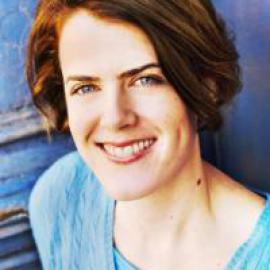非常抱歉,
你要访问的页面不存在,
非常抱歉,
你要访问的页面不存在,
非常抱歉,
你要访问的页面不存在,
验证码:

职称:Assistant Professor of History
所属学校:Stanford University
所属院系:history
所属专业:History, General
联系方式:(650) 723-0694
Ph.D., University of California, Berkley, 2005 M.A., University of California, Berkeley, 2001 A.B., Harvard University, 1998
I am a historian of the twentieth century United States working at the intersection of intellectual, political, and cultural history, with a particular interest in ideas about the state, markets, and capitalism and how these play out in policy and politics. I have published articles about the history of conservatism, libertarianism, and liberalism in a number of academic and popular journals, including Reviews in American History, Modern Intellectual History, Journal of Cultural Economy, The New York Times, The New Republic, and Dissent. My first book, Goddess of the Market: Ayn Rand and the American Right (Oxford, 2009), was an intellectual biography of the libertarian novelist Ayn Rand. For more on this book, watch my interviews with Jon Stewart and Steven Colbert, or check out my website. I am currently writing a book about the economist Milton Friedman. At Stanford, I’ve been involved in a number of initiatives, including serving as a faculty advisor to the Approaches to Capitalism Workshop at the Stanford Humanities Center, co-founding the Bay Area Consortium for the History of Ideas in America (BACHIA), and convening the Hoover Institution Archives Library and Archives Workshop on Political Economy. I teach courses on modern U.S. history, religious history, and the intellectual history of capitalism. To prospective graduate students: Yes, I am accepting new students! I can advise a range of twentieth century topics, but my expertise is intellectual, political, and cultural history, with a particular interest in conservative politics, free market economics, religion, and the history of capitalism. I am particularly interested in applicants who want to study the intersection of gender with history of capitalism and/or conservatism. Thankfully, Stanford’s archival collections in these areas are particularly rich, making it possible to explore a range of possible dissertation topics without leaving campus. If you are admitted to our program, you will be invited to campus and will have a chance to meet with me, other faculty, and current students. In the meantime, please read carefully the materials about our program on our website, which should answer most questions. Your application may list me as a potential mentor, particularly if our areas of interest overlap or you would like to study the postwar U.S. You do not need to have identified a potential topic, although you can indicate potential ideas. Your statement should describe the intellectual journey that led you to graduate school, referencing specific books, courses, professors, and research experiences. If you were not an undergraduate history major, explain why history is your chosen discipline and the academic experiences that have prepared you for graduate study. Supportive letters from professors who know you well, high grades in history courses, and a polished writing sample using primary sources are the most important parts of your application. There is no minimum GRE score requirement. I also request that all prospective applicants familiarize themselves with the realities of the extremely competitive academic job market in history. The latest data is here. Stanford specific data, including placement rates for history Ph.D graduates over the past 10 years, can be found here.